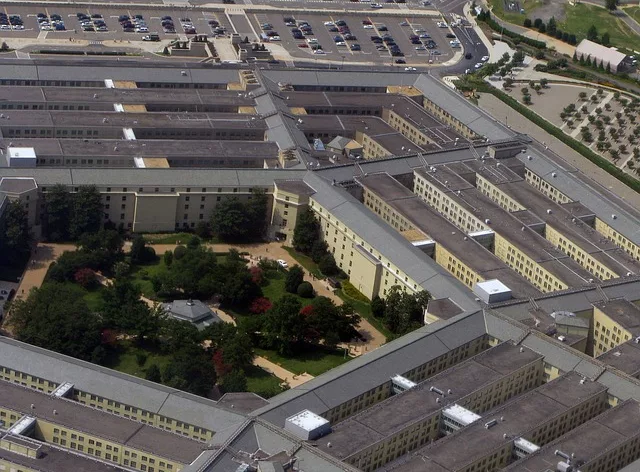Policy Fight Could Force Federal Government Shutdown

The federal government has until September 30, 2023, to reach an agreement on stopgap funding for the federal government or risk a federal government shutdown this fall.
The problem? Members of an organization within the House of Representatives called the House Freedom Caucus refuse to commit to any deal that falls short of its demands for add-ons to the stopgap funding bill. Part of those demands? Eliminating what the Caucus labels “woke” Pentagon Policies.
A federal government shutdown would be necessary without a continuing resolution to authorize more funds. That shutdown would affect military members, veterans, retirees, and family members, especially where pay and benefits are concerned.
For example, active duty troops must still report for duty during a government shutdown, but unless funding is passed specifically to pay the troops, they will work without pay until funding is authorized.
That does not mean they won’t eventually be compensated, but between the shutdown and new funding, the troops would have to get by as best they can.
Why is a Government Shutdown Looming?
The House Freedom Caucus will, according to an NBC News report, oppose any funding bill “unless it includes its preferred language about border security, new laws to address what it calls the ‘weaponization’ of the Justice Department and the FBI and a shift in some of the Defense Department’s policies — although it didn’t detail all the changes it wants.”
The House Freedom Caucus issued a statement on August 21, 2023, indicating it would, according to NBC News, “not support a “clean” continuing resolution, or CR, that would keep the government open beyond when current government funding expires after Sept. 30 by extending existing funding levels with no change.” And it’s not just about fighting for or against so-called “woke” Pentagon policy.
About one-third of House Republicans oppose what some derisively call a “blank check” for assistance to Ukraine. They voted against more aid to the war-torn nation, while the White House has asked for $13 billion for additional military support in Ukraine.
Politics Versus Military Funding
Those used to watching these struggles to fund the government aren’t surprised by political posturing on both sides of the aisle where the shutdown issue is concerned. No one expected to get an easy deal by the September 30 deadline for a continuing resolution.
But the timing of the federal budget impasse could make life and military service difficult for junior enlisted troops in the Army, Air Force, Space Force, Marine Corps, Navy, and Coast Guard. They are already fighting financial woes in the form of inflation, higher housing costs, and childcare issues.
Those who oppose a “clean” continuing resolution without add-ons or riders may or may not be thinking about the financial hardships facing troops who could go without pay during a government shutdown.
But many believe the financial hardships troops face under those circumstances should be a guiding factor, if not THE guiding factor, in any decision-making process over additional funding to keep the government open.
What’s Next?
The federal government has until September 30 to pass a continuing resolution to keep the government open for business. That might sound like a lot of time, but the House and Senate are currently in recess, and negotiations can’t begin in earnest until the House returns on September 12. That leaves only three weeks to get it all done.
Related:
- Military Money 101
- Important VA Healthcare Milestone Passed
- VA Disability Benefits for COVID-19
- VA Loan Down Payment Rules
- Military Retirees Lose Access At Some Overseas Bases
About the author
Editor-in-Chief Joe Wallace is a 13-year veteran of the United States Air Force and a former reporter/editor for Air Force Television News and the Pentagon Channel. His freelance work includes contract work for Motorola, VALoans.com, and Credit Karma. He is co-founder of Dim Art House in Springfield, Illinois, and spends his non-writing time as an abstract painter, independent publisher, and occasional filmmaker.


